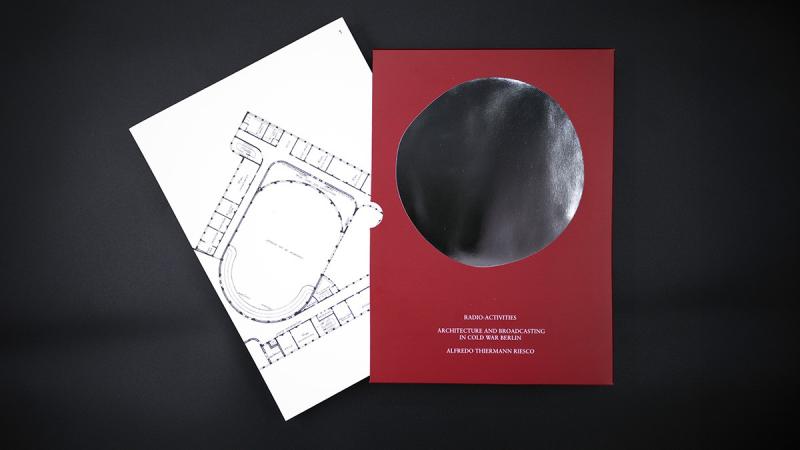During the book launch, the author, Alfredo Thiermann, in his book, Radio-Activities, he interrogates the status and agency of buildings during a period — not unlike today’s — of increasingly hyperconnected, ubiquitous, and apparently invisible modes of coexistence.

In 1945, having occupied German territory, Soviet troops made two strategic moves: they dismantled the Deutschlandsender III radio transmission tower, the single tallest structure at the time in Europe, and they seized the Haus des Rundfunks in West Berlin, a monumental building designed by Hans Poelzig. These moves were crucial both symbolically and technically, as together they sparked what would become a veritable radio war between the Eastern and Western blocs during the Cold War. In this talk, I will present Radio-Activities, my recently published book, in which I investigate this spatial conflict by interrogating the political, technological, and environmental dimensions of architecture at a time when buildings began to interact with the remote transmission of information.
By its very nature, the medium of radio promised to evaporate the intrinsic material aspect of architecture; in fact, it did no such thing. By way of transscalar analyses, in the book, I pay particular attention to Berlin’s buildings, walls, transmission towers, factories, research institutions, and territorial organisations during the Cold War period, which enabled the production, reproduction, and transmission of sonic-based content across the divide of the Iron Curtain. In doing I reveal underresearched continuities between politics, technology, media, and architecture, reframing notions of national and transnational boundaries.
In Radio-Activities I interrogate the status and agency of buildings during a period — not unlike today’s — of increasingly hyperconnected, ubiquitous, and apparently invisible modes of coexistence.
In this talk, I will present Radio-Activities, my recently published book, in which I investigate this spatial conflict by interrogating the political, technological, and environmental dimensions of architecture at a time when buildings began to interact with the remote transmission of information.
Alfredo Thiermann is an architect and Assistant Professor for History and Theory of Architecture at EPFL. PRiot to EPFL, he has taught at Harvard University and Pontificia Universidad Católica de Chile. He has been a fellow at the Max Planck Institute for the History of Science, at the Canadian Centre for Architecture in Montreal, and at the Collegium Helveticum in Zurich and has been the recipient of the Rome Prize of the German Academy in Rome.
Have questions about this event?
Contact M K Aaref, Alumni and Development Officer at mk.aaref@daniels.utoronto.ca
This event is part of
Lectures & workshops
The University of Toronto is full of brilliant minds engaging with ideas that are transforming our world. Be part of this community of discovery.






